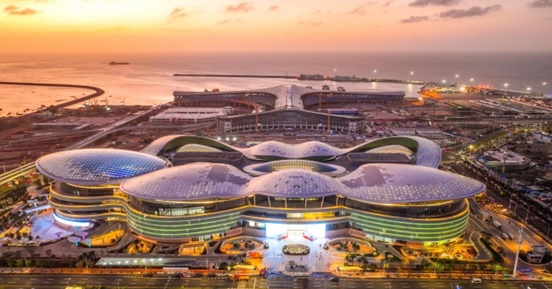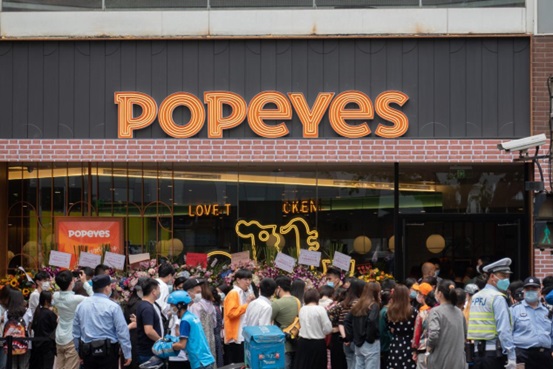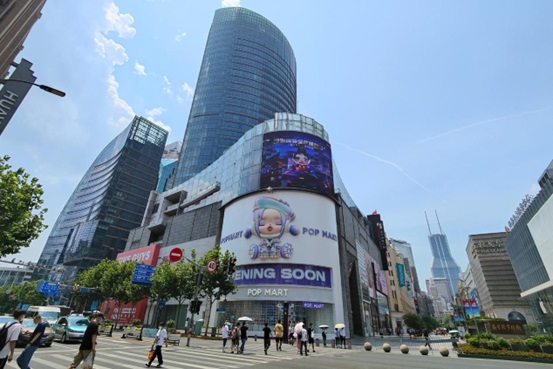By Xu Peiyu, People's Daily
"First-store economy" means the total businesses brought about by the first stores set up by international or domestic brands in a specific region.
A number of brands have recently established their first stores in major Chinese cities, offering new destinations of consumption with upgraded services. Driven by the robust "first-store economy," commercial zones in multiple cities have witnessed a rise in retail sales and a further release of consumption potential.
For instance, eight top-notch beauty brands, including Tom Ford, Gucci, Lancome and Yves Saint Laurent, recently set up outlets at Parc 66, a retail landmark in Jinan, east China's Shandong province, which were these brands' first in Jinan or Shandong province.

Besides, people were seen lining up in front of a new shop opened by Chinese pastry maker Luxihe in Xiamen, southeast China's Fujian province, and the first franchise store opened by LELECHA, a high-end tea drink brand in Fujian was also crowded.
Japanese furniture and home accessories retail company Nitori, Japanese restaurant Ginza Onodera and Chinese chain restaurant Green Tea made their debut in Changsha, central China's Hunan province. During the weeklong National Day holiday in October, 51 major merchandising enterprises in the city reported total revenue of over 862 million yuan, up 8.84 percent year on year.
Apart from that, most of the "first stores" that recently opened have launched customized services and experience activities to better meet consumers' individualized and upgraded demands.
On Sept. 30, a Nike Style retail concept store opened at the Shanghai TX Huaihai shopping mall. It is the first retail concept store opened by Nike in China after the multinational sportswear company decided to accelerate its digitalization in the country. Besides, it is also the first Style Remix lab of Nike which allows consumers to customize their orders.

Chinese e-commerce giant JD.com launched a flagship experience store at a shopping mall in Hefei, east China's Anhui province. Being tech-ish and fashionable, the store is attracting a large number of consumers.
Apart from renowned international companies, emerging Chinese brands are also launching first shops in Chinese cities to fully leverage brand influence, regional economic prospects and regional resource allocation. Last year, consumption became the top driving force for China's economic growth, as final consumption expenditure contributed to 65.4 percent of the country's economic growth.
The emerging "first-store economy" accelerates the building of international consumption center cities and contributes to consumption upgrade.
Shanghai, for example, proposed in September, 2021 to build itself into an international consumption center with global influence, competitiveness and reputation by the end of 2025. According to official statistics, the metropolis was home to over 1,000 "first stores" and over 3,000 brands debuted their products in Shanghai the last year.

In the first nine months of this year, 703 brands set up their first outlets in Shanghai, and the whole-year figure will exceed 800. Over 15 percent of consumers are expected to shop in the city because of the launch events to be hosted there.
"First-store economy" is exactly one of the important boosters advancing Shanghai's progress in building an international consumption center city.
Zhang Jianping, director of the Center for Regional Economic Cooperation under the Chinese Academy of International Trade and Economic Cooperation, told People's Daily that "first stores" expand the scale effect of urban consumption and diversify consumers' choices, thus improving cities' consumption capability and helping the building of international consumption center cities.


